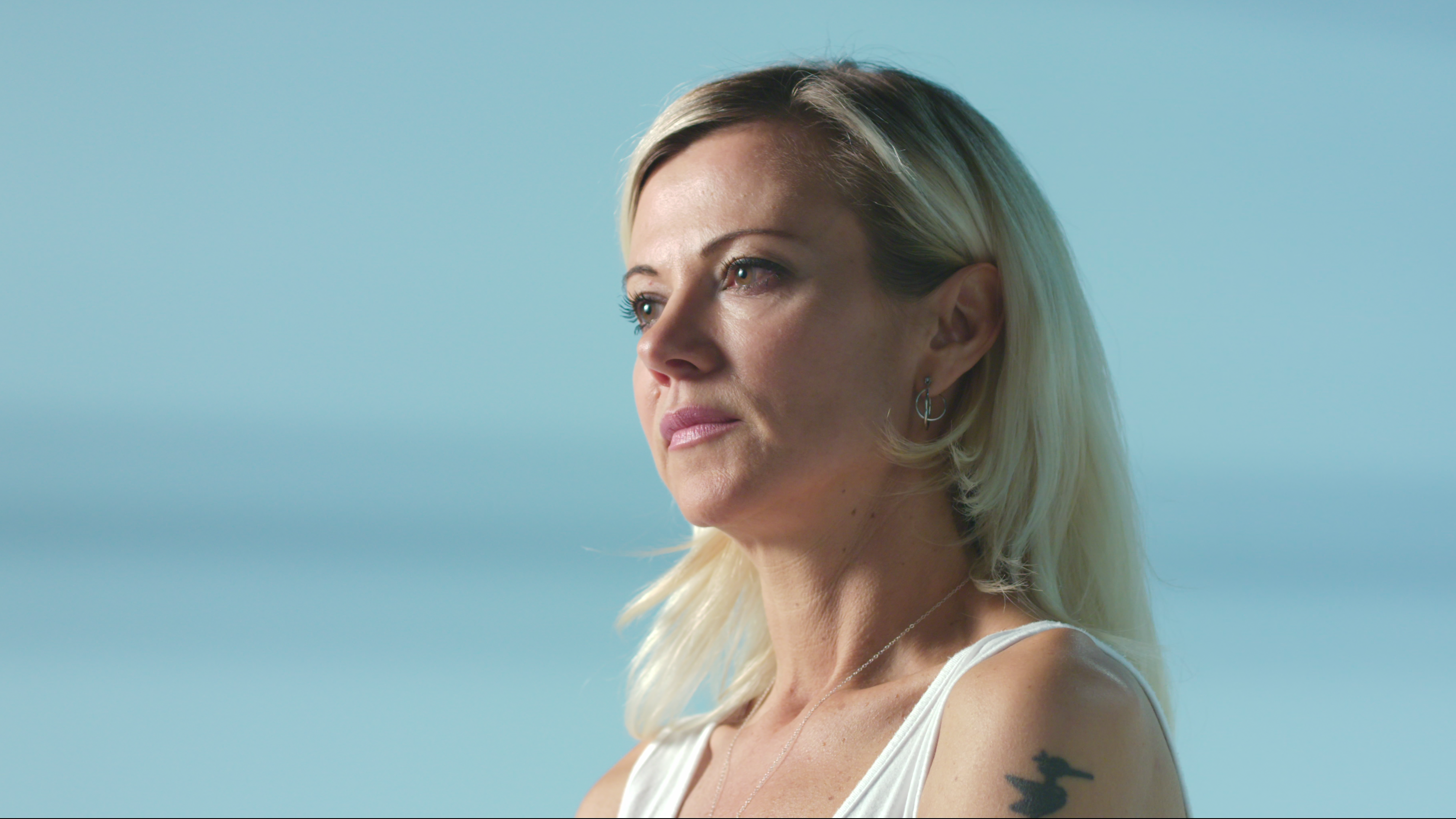Bad Vegan is an important reminder of the warning signs of coercive control


Bad Vegan: Fame. Fraud. Fugitives is the latest true crime documentary to take Netflix by storm, coming weeks after the success of The Tinder Swindler and Inventing Anna.
The four part documentary series follows vegan restauranteur Sarma Melngailis and the public fall of her NYC vegan empire, Pure Food and Wine.
The now defunct celebrity eatery was controversially shut down in 2016 after Melngailis funnelled £1.4 million from the business to her fraudster husband, Anthony Strangis, going by Shane Fox. The couple were arrested on the run in Tennessee that year.
Sarma's noughties fame combined with her inconceivable tale of being swindled out of millions on the belief that it would make her dog immortal have undoubtedly hit the Netflix documentary jackpot. But Bad Vegan extends much deeper than Sarma and the demise of Pure Food and Wine.
The docuseries is very much about emotional abuse, with the vegan chef's unravelling caused by her toxic relationship with ex husband Stranglis.
“It feels like nobody knows the extent of it, except for him,” Sarma recalled of the alleged abuse involving brainwashing and coercing her into wiring him money and defrauding investors and employees. “Whatever it was, I gave him what he asked for”.
Bad Vegan is much more than the latest true crime documentary. It is also an example of emotional abuse and a reminder of the very real warning signs of coercive control.
Marie Claire Newsletter
Celebrity news, beauty, fashion advice, and fascinating features, delivered straight to your inbox!

What is coercive control?
Coercive control is a pattern of actions intended to harm, punish or frighten a victim. These include assault, threats, humiliation and intimidation among other forms of abuse. Coercive control was introduced as a criminal offence in England and Wales in 2015 and carries a maximum sentence of up to five years in prison.
"You signed on to this," Stranglis told Melngailis in a chilling phonecall. "You told me you love me. You want the forever. You told me you wanted happily ever after."

Coercive control - how to spot the signs
Coercive control is difficult to recognise whether you're a victim of it yourself or are witnessing it as a third party. This is in part because the offences can be subtle but also because coercive control typically develops over time, manifesting over months or even years. This generally sees the perpetrator very slowly taking control of every element of the victim's life, from social interactions to finances. The intention of this controlling behaviour is to make the victim entirely dependent on the perpetrator, depriving them of independence and isolating them from support.
Coercive control signs
There are definitely signs of coercive control to look out for, with Sarma's friends and family recalling many over the documentary. Women's Aid has identified these common examples of coercive behaviour:
- Isolating you from friends and family
- Controlling your finances
- Making threats or intimidating you
- Depriving you of basic needs
- Monitoring your time
- Monitoring you via online communication tools or spyware
- Taking control over aspects of your everyday life, such as where you can go, who you can see, what you can wear and when you can sleep
- Humiliating, degrading or dehumanising you
- Depriving you access to support and medical services
- Repeatedly putting you down

Understanding coercive control
A key barrier in identifying coercive control is the lack of understanding around it. Sarma Melngailis explained herself that she wasn't "tied up" or physically prevented from getting up and leaving, and that is where we so often let down victims of such emotional abuse. "Why didn't they just leave?" - this is a question we have to stop asking.
Expert and author of How Men Entrap Women Evan Stark likened coercive control to being taken hostage, explaining: "The victim becomes captive in an unreal world created by the abuser, entrapped in a world of confusion, contradiction and fear.”
This is something that Sarma also addressed after her 2016 arrest. “Why didn’t I run? Why didn’t I leave? Why didn’t I call the police? That’s the big question. Nobody talks about issues related to somebody manipulating your mind."

“The techniques of conditioning and coercion and manipulation that leaders of groups use are very, very similar to the techniques that emotionally and psychologically abusive lovers use,” Amanda Montell, author of Cultish: The Language of Fanaticism, told Netflix's companion site, Tudum.
“In a cult scenario, you hear talk of brainwashing. In a relationship scenario, you’ll hear about grooming, but really, that’s the same thing,” she continued. “With cults, you hear about mind control and spiritual bypassing, which essentially mean... psychological abuse and gaslighting.”

Anyone can be a victim of domestic abuse, and it can take years for victims of coercive and controlling behaviour to realise they are being abused. If you or anyone you know needs support please contact Women's Aid, Respect UK or Refuge’s National Domestic Abuse Helpline is free to call: available 24/7 on 0808 2000 247

Jenny Proudfoot is an award-winning journalist, specialising in lifestyle, culture, entertainment, international development and politics. She has worked at Marie Claire UK for seven years, rising from intern to Features Editor and is now the most published Marie Claire writer of all time. She was made a 30 under 30 award-winner last year and named a rising star in journalism by the Professional Publishers Association.
-
 Vintage sales, flower festivals and unique brunches - 7 fun and frivolous things to do this bank holiday
Vintage sales, flower festivals and unique brunches - 7 fun and frivolous things to do this bank holidayBy Jadie Troy-Pryde
-
 How Ben Affleck feels about dating after his divorce from Jennifer Lopez
How Ben Affleck feels about dating after his divorce from Jennifer LopezHe's taking it slow
By Iris Goldsztajn
-
 Dior travels to Kyoto for a cherry blossom-inspired fashion show
Dior travels to Kyoto for a cherry blossom-inspired fashion showHere's everything you need to know
By Clementina Jackson